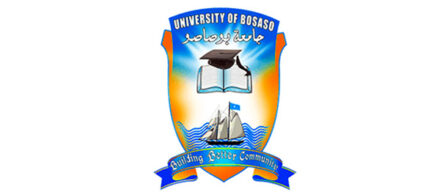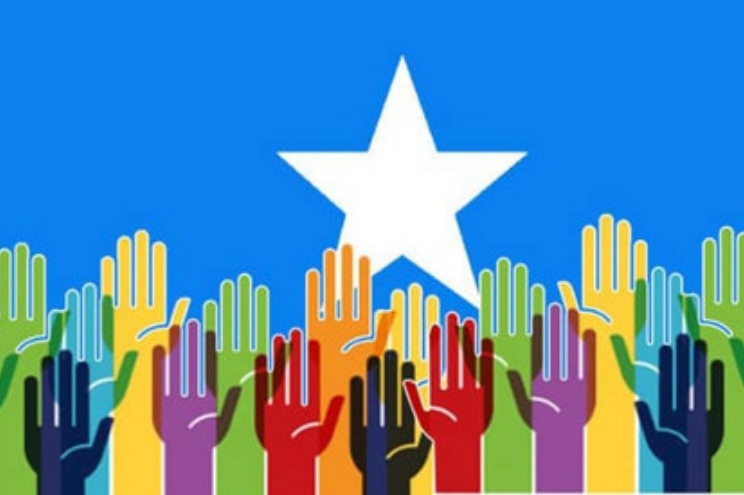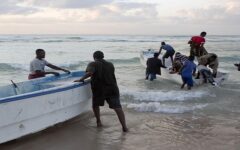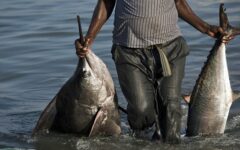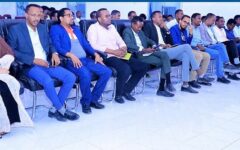Somali Political Leaders and their Ambitions in Somalia
December 8, 2023 2024-01-22 16:42Somali Political Leaders and their Ambitions in Somalia
Abstract
The study is intended to investigate the ambitions of Somali leaders and why many of them opt to stay in power for a longer period regardless of political instability the country has experienced in decades. The population of the study will be in the whole country of Somalia where the researcher will use electronic questionnaires to collect primary data and secondary data. Collected data shall be analyzed by use of Statistical Package for the Social Sciences (SPSS) then results shall be displayed on figures and graphs.
1.CHAPTER ONE: INTRODUCTION
1.1. Background to the Study
The assessment by the United Nations has found out that most of leaders in Somalia are unwilling to leave power voluntarily and have many times instigated civil war which results in uncountable death cases and displaced families. In 1991, Somalis experienced the collapse of their state, the end of the federal governorship and the outbreak of one of the most devastating civil wars the African continent has ever witnessed.
In the vacuum left over by the old regime, warlords, clans, sub-clans and Islamist movements took to the floor in an apparently never-ending fight for power and resource control. Everybody was opposed to everybody in a looting practice and claim for legitimacy over the remains of the State itself, its capital town and the neighboring area. The dismissal of a tyranny does not compare with the chopping down of a symbolic tree, more if the bulwark of such statehood laid in oppression and death.
But it is also true that the authoritarian rule, ever since the bloodless coup, had managed to accommodate competing clans’ claims and rivalries, or at least to constrict them at a submerged level. Only the Ogden war (1977) unveiled political cleavages. Leaders in the government have constantly been waging war on the minority ethnic groups to cause confusion and continue leading. Most of them remain on the powerful positions without a good reason of helping their societies. Term limits have recently become controversial and divisive. Some leaders have used dubious constitutional amendments to extend their stay in power.
Usually, governing parties and their leaders almost exclusively pass such amendments with minimal or no opposition participation. That is what happened in Rwanda, Uganda, Burundi and Congo Republic. Similarly, despite constitutional provisions and regular elections, countries such as Angola, Togo, Cameroon, and Equatorial Guinea are virtually de facto one party or one leader repressive states wherein resignation, retirement and term limits are meaningless.
Leaders have different reasons for refusing to leave office. In some countries, the answer lies in a lack of succession planning to transfer power. In others, leaders blatantly refuse to resign because of their despotic tendencies. They abuse their states’ minerals, oil and money with their families and friends. Stepping aside would cost them these “benefits”. For instance, the eventual departure of Angola’s Eduardo Dos Santos from office after decades in power has left his family exposed. His children stand accused of amassing billions during their father’s many terms (Hirschman & Albert, 2007).
Without strong constitutional safeguards and a democratic culture to counter the negative consequences of the “sins of incumbency” – as corruption associated with state power is often described by South Africa’s governing party, the African National Congress – can be menacing. It breeds “Big Men, Little People”, to borrow a phrase from the title of a book by journalist Alec Russell.
1.2. Statement of the Problem
Due to strong controlling nature of Somalia government young people are unable to get any government positions. Some are strongly controlled by community leaders who prefer aged people that are easier to control. As a result, few individuals in the community decide who should become their leader rather than the majority of the community members.
On the other hand, community leaders hardly do thorough background check on an individual before putting him on the helm. This has immensely contributed to civil war among the Somali community. Therefore, without proper control of those who decide who should be a leader, Somalia remains among the nations that shall be divided on opinions of who should be their leader and why a leader should stay on power for a long time than expected.
The tendency of changing the constitution and extending the term limit of a seating president has been a tendency among the presidents in Africa as a continent. Term limits regulate leadership succession. They are meant to counteract leaders’ temptation to overstay their welcome. This helps to consolidate and legitimize democratically elected leadership. As a result, Somalia has also been, but regular transfers of power give citizens hope that new policies, programs and approaches will be adopted by the new leadership.
In turn, this could overturn numerous political, social, economic impacts of uninterrupted strangleholds on power in Africa. The benefits of frequent power transfers are evident in African countries that have them, such as Senegal, Botswana, and Mauritius. Incumbents are kept on their toes because there is a real chance they can be removed from power if they fail to govern properly.
Just like Somalia, weaning leaders off power addiction Perceptive leaders know when to leave office, whether through resignation or retirement. Botswana’s past and current presidents have established this practice despite the country’s continued one-party domination. With the emergence of a strong democratic culture, South Africa has experienced the opposite of such presidential power mongering.
1.3. Purpose of the Study
The purpose of this study is to explore some of the reasons why Somalia leaders want to remain in power for a long time while comparing their ambitions with their actions. It will also describe some of the characteristic and tendencies of leaders Somalia has today compared to those who were there in the past (Getachew,2014). Having gone through a number of leadership transformations, it is vital for Somalia to understand some of the tendencies that are common with their leaders so that they choose the right leaders in any elections. Some of the historical leaders who have had a good economic progress records in their respective countries remain in historical books with their leadership styles. This study shall also compare Somalia with such leaders while considering the impact in social and economic effects of their leadership. It shall also point out some of the worst leaders in history and give reasons why they are considered bad leaders. This shall help to come up with a good recommendation about what Somali leaders to have a good leadership record. It will also allow further study on leadership styles which can be emulated by a potential leader who will become a Somali leader in future.
1.4. Research Objectives
The study aimed to achieve the following objectives at the end of the study:
- To examine the effect of leaders overstaying on power.
- To find out durable solution to curb/control irregular extension of presidency limits and delay of elections.
- To determine the significance of the youth and role of gender imbalance in improper stay on power.
1.5. Research Questions
- What role can Somalis play to make sure their leaders deliver their mandate according to the expectations of the citizens?
- How can community inclusivity improve on service delivery?
- Who else will take part to stop the irregular extension of terms of presidency and inappropriate change of the constitution to suit the sitting leaders?
1.6. Significance of the Study
There are several challenges and problems associated with long sitting leaders in Somalia and many are associated with barbaric nature of the leaders with their deceptive culture of cheating the citizens with community projects. A large number of youths who have graduated from Universities in Somalia and are willing to take up leadership positions to exercise their expertise yet the unfair treatment in elections and selection of representations has made them to be rendered useless to the society (World bank Group, 2016).
1.7. Justification of the Study
The study findings will be used by both the federal government offices and state governments to find –solution on leaders who stay in power for a long time and are not ready to give it to others. Therefore, the justification of the study is also expected to open up a road for better leadership in Somalia particularly inclusivity of different ethnic groups, ages and gender.
1.8. Assumptions of the Study
This proposal will be a good benefit to all youth who are residing in Somalia by reason of once the fully understood the effects of what they were willing after they knew the problems of youth on irregular migration. On the other hand, other researchers can also use the finding of the study for reference, and it can help them in future as a source of secondary data.
1.9. Scope of the study
The study was carried out to analyze the factors influencing leadership styles in Somalia and their ambitions. One of major finding of this study will be limited to reasons why leaders in Somalia are willing to stay in power for a long time and the role of the general society to curb this problem.
1.10 Operational Definitions of Terms
GBV Gender Based Violence
HRM Human Resource Management
PIM Puntland Institute of Management
SNA Somalia National Army
HDR Human Development Report
2. CHAPTER TWO: LITERATURE REVIEW
2.1. Introduction
Somalia is characterized by a lot of civil wars and unstable government. Since the fall of the central government, a number of political dynamics have been seen in Somali leadership. During the civil war, Mogadishu came under the control of armed militias, the Islamic Courts Union (ICU) and AS, successively. In 2011, the African Union Mission in Somalia (AMISOM) ousted AS from the capital and the Transitional Federal Government (TFG) was established.
In 2012, the FGS was created, along with the main power institutions, the presidency and the Federal Parliament of Somalia. As presence is localized in a few districts and clan disputes remain a widespread issue, in particular with regards to land ownership. Security is a major concern in Mogadishu, with regular targeted killings, bombings, kidnappings, and pervasive criminal violence. Despite the country facing many problems, one of the chronic problems is hunger for power. Every leader of a community or a small civic sect with a particular interest wants to control a larger geographical area. But what are some of the effects of such self-imposed leadership styles?
According to a UN report, unemployment rate for youths in Somalia is one of the highest in the world at 67% among all 14 to 29-year-olds — 61% among men and 74% among women.
The Somalia Human Development Report 2012, issued by the UN Development Program considers 82% of Somalis to be poor, with 73% living on less than $2 a day. The report also said that 40% of youths are actively looking for work, while 21% are neither working nor in school with unemployment becoming among the biggest threats facing the Somali society.
Somalia with population of about 15.3 million of which 65% are nomadic (as indicated by facts and figures report set by Ministry of Planning and Statistics of Somalia), the youth experienced unemployment in Somalia. It is estimated that 70% of Somali’s total population is less than 30 years old yet less than 2% are selected to leadership positions.
2.2. Causes of Poor Political leadership
Main causes of poor political leadership in Somalia can be summarized as follows:
2.2.1Lack of Voice and Weak Accountability.
Bad governance is the relationship between those who govern and those who are governed as a consequence of decision-making. This unfavorable relationship is created as a consequence of external factors or decisions such as violation of central or acceptable Somali cultural norms, such as those of liberal democracy, and bad economic policies have crippled the economy in almost all sectors.
Bad governance collectively encompasses governance in government and corporate settings. Somalia is faced by bad governance, corruption, deceit and passing of unfair policies that tend to hurt the citizen. From this, it can be noted that different manifestations of bad governance can vary in severity and the potential impact in their respective setting.
Lack of transparency and accountability, arbitrary policy making and the cheating of those who are governed are greatly contributed by disallowing citizens to voice their concerns. Somalia government has continuously silenced activists by arresting them and sending others to long term jail sentences as a strategy to make sure no one opposes government autocratic decisions.
2.2.2Political Instability.
The widespread euphoria by new president, Mohammed Abdullahi “Farmajo”, has been replaced by acute anxiety of having a strong political environment. The huge expectations of change and reform are unmet; though the Somali president has made little undeniable changes since he came to power anyway, politics remains as fractured as ever; AMISOM is planning its withdrawal at a time when the threat from Al-Shabaab remains potent; and many of the country’s familiar governance and security challenges are compounded by new external and geopolitical pressures.
Progress in rebuilding the state is fundamentally limited because there is no national political settlement and the allocation of power and resources is poorly, if at all, defined. (One of the biggest problems is the ill-defined division of power between the president, prime minister, and parliament.) The government has continued to rule based on the 2012 Provisional.
2.2.3Corruption
Government corruption remains a massive problem in Somalia, which is rated the most corrupt country in the world by Transparency International. Official fraud, theft and malfeasance have undermined decades of international efforts to rebuild a Somali state. Official venality is a major recruiting point for Al-Shabaab. Although some international donors now give stipends directly to troops (the U.S. recently suspended its payments because of corruption and human rights concerns), many government soldiers are poorly paid and provisioned before It is worth noting that several important areas in the Shabelle river valley are now in the control of Al-Shabaab after government troops pulled out in protest because some of them have not received salaries for months. On 14 December 2017, the U.S. suspended food and fuel aid for most of Somalia’s armed forces over corruption concerns.ayway the Somali government did very little about army financial problems, they re-registered the arms and opened accounts to which they will receive their salaries monthly, but one of the major mistake the government did was they chased the old and experienced persons from the troops and employed young fresh who have no enough experience to guide the army this and many others are the mistakes done by the current government and that is why the road of success is far.
According to the Somalia Monitoring Group’s 2 November 2017 report, “despite limited improvements in public financial management, federal institutions remain incapable of addressing pervasive corruption. Mechanisms established to review Government contracts have continued to be circumvented, and the lack of transparency regarding company ownership leaves all Government contracts open to concerns of nepotism.
Government ministries continue to bypass the Treasury Single Account at the Central Bank of Somalia, avoiding oversight of their revenues by the Federal Government’s fiscal authorities. The misappropriation and misuse of public land in Mogadishu is ongoing, despite pledges from the previous administration to address the problem. The printing of counterfeit Somali currency in Puntland continues to undermine economic stability and has prompted outbreaks of civil unrest”. This has made leaders to have little control over certain groups which eventually make political leadership to become very difficult.
2.2.4Lack of good governance
The region like other regions in Somalia is faced by prolonged turmoil, conflicts, and lack of good governance all this created confusion, recurring conflicts and economic degradation with diminishing livelihood. The political and elite groups have taken advantage of this and have taken over some of the significant areas in the economy.
2.2.5Transparency.
Poor political leadership informs the bad governance that is Somali’s greatest barrier to social and economic development. Chute makes an important point: the refusal of some African leaders “to be open and honest with the public further shows a disregard for the people who put them in power, and in turn erodes public trust in the leaders themselves.” She raises the hope that chute as Africa’s population becomes younger, better educated, and part of the information age, the leaders’ behavior that she chronicles will become politically unacceptable: “African presidents have to learn to talk and account to their people.” (Campbell, 2016)
2.2.6Poverty Index
At Independence in 1960, poverty was one of the major vices the new Somalia political leadership promised to fight with resolve. The new leaders blamed colonialism for the vice. Today, majority of Somalis are poor despite government policies aimed at fighting poverty and the involvement of many NGOs. The tendency of Somalis scrambling for boats in Red sea to leave the country for Europe and United States is on the rise. This implies that poverty is pushing them to make decisions that they could avoid in case they had alternatives to earn their living. The poor are used as bridges to political position and power through promises which are never fulfilled. Many leaders promise for change but rarely fulfill their promises (Campbell, 2016).
- Over-dependency on foreign Aid
Since our region is reach in livestock, farming, fishing and other natural resources, it is foolish for Somalia people to rely on outside aids instead of investing and utilizing its main resources like natural resources, manpower and creativity of its citizens which can manage and stimulate the economy. Many leaders have lost their ambitions and lack visions to improve the economy of the country.
2.2.8Economic Effects from Emigration Patterns
Economic factors emerge as the main driver of migration among the Somali youth. Many young youth who can guide their leaders and point out mistakes their leaders do have left the country to search for greener pastures in Europe and the United States. This has been further deepened by some youth joining war groups like Alshabaab. This shows their youthful is being diverted to destructive activities. According to International Organization for Migration (IOM), between August and October 2011, some 3,500 young men and women left Somaliland heading to Libya. In 2012, approximately 300 to 350 young people are reported to have left Somaliland during the last three months of that year. In June 2013, the press in Somaliland estimates that 150 people per month were heading to Libya from Somaliland. A UNHCR-commissioned study on mixed migration estimates that some 500 to 3,000 people cross the Somaliland–Ethiopia border each month en route to Libya. Since many young youth with good intellect have left the country, leaders get easy time to control resources to their advantage.
1.CHAPTER THREE: RESEARCH METHODOLOGY
3.1. Introduction
This section explains some of the methods that shall be used for data collection. Data shall be collected by administering questionnaires. Some of the questionnaires shall be sent to respondents via email while others shall be administered as a hard copy paper. Collected data shall be analyzed by use of SPSS and other statistical software like strata to determine the P-values that shall signify whether the claim should be rejected or not.
Analyzed data shall also be tested for validity so that the outcome is acceptable not only by the research team but also in international arena. Therefore, to complete this part, the research shall have research design, sample population and research instruments that shall be used to analyze data before coming up with conclusive results.
3.2. Research Design
This study is a descriptive survey of Somalia politicians and community leaders. It will also involve few community respondents who will ascertain service delivery of their leaders. A questionnaire shall be subsequently formulated from the variables/contents identified in the literature review. The questionnaire has been attached on the appendix of this proposal.
3.3.1Research Population
The targeted population for this study shall be the political leaders of Somalia and community leaders.
3.2.2 Sample Size
The sample consisted of 31% of the 100 politicians in the population.
Table 3.1: Population Structure was University Graduate
| Respondents | No. of individuals. | Sample. |
| Politicians | 45 | 23 |
| Community Leaders | 55 | 30 |
| Total | 100 | 53 |
Source (University of Bosaso, 2016)
3.2.3Sampling Procedures
The research sample procedure shall be a stratified random sampling. The stratified random will be used to reduce skewed data from respondents.
3.2.4Research Instruments
This study shall rely on primary data collection methods. The items in the instrument (Questionnaire) shall be developed from the literature review to assist in the collection of primary data, (see appendix II). The questionnaire will be self-administered in that it will involve the ‘drop-and-pick-later’ approach. This shall give the respondents ample amount of time to think through the questions before answering them.
3.3Validity and Reliability of Research Instruments
3.3.1Validity
The researcher shall develop a pilot study among the sample population. This will help to access the legitimacy of instruments and their accuracy to produce the required information against the objectives of the study.
3.3.2Reliability
The researcher shall consider the reliability of the research and consistency of the obtained data. This shall help to ascertain the reliability of the results in the research. The reliability of the research instruments shall be formulated by the researcher before the analysis and consequent presentation.
3.4. Data Analysis
The process of data analysis shall involve 3 stages. Completed questionnaires shall be edited for completeness and consistency. The data will be checked for any errors and omissions. The data was analyzed using procedures within MS EXCEL. Quantifiable data will be coded and keyed and fed into a Statistical Package of Social Science (SPSS) tool to produce descriptive statistics (mean and standard deviation) and relational statistics (correlation coefficient) to analyze the data.
The data shall be analyzed across all respondent types as levels. The quantitative data shall be presented by means of tables, graphs and charts. Qualitative data will be presented in the form of narration. For closed questions, a comparative analysis using distribution tables, quartiles (percentiles) and graphical analysis will be done.
3.5. Ethical Consideration
The researcher shall be very strict with the ethical aspect that involves the research and will make sure personal biographical data remains private. Participants shall also take part in the research voluntarily.
3.6. Limitation of the Study
The following factors that are expected in this research include the following:
- Travelling to remote areas to meet local political leaders may become difficult.
- It will take too long to collect questionnaires because some of the respondents will be far apart. For instance travelling from furthest east of Banadir region from Mogadishu will be a daunting task.
- Some respondents, especially the illiterate ones may not bother to answer the questions.
- The researcher may not travel in summer season because of intense heat experienced in the region.
- Sources of secondary information may be limited due to few books that document political history of Somalia.
CHAPTER FOUR: Research Findings (Results) and Discussion
4.1. Role of Citizens
The Somali social and political environment has shown positive developments since 2010. Before the outbreak of the civil war in the late 1980s Somalis were commonly perceived as a homogenous ‘nation’. According to the findings, building a perception of cultural integrity is only serving the interests of nationalist and post-colonial elites who were striving to overcome centrifugal forces of clannish culture. However, nationalist facade nepotism is continued and shows no sign of ending any sooner. According to (Immigration and Refugee Board of Canada, 2017); Article 1 of the Somali citizenship law of 1962 grants citizenship to any person whose father is Somali. Somalis who live abroad and renounce any other citizenship are also included, with a Somali defined as any person who by origin, language and tradition belongs to the Somali nation. Many citizens are still struggling with breaking the tendency of power successions among the powerful clans that leave the minority with no hope of leadership. The graph below shows the ethnic groups in Somalia (Houjale, 2020).
Source (University of Texa, 2017)
The interviewees were asked if clannism affect the leadership selection. Their feedbacks are graphed as shown below:
This shows that indeed clannism has a profound effect on leadership selection. Some of the interviews said that Somalis ancestral understanding of citizenship stresses on blood relationship of all Somalis, who claim descent from a common forefather. Therefore, passing of leadership powers begins with the next immediate kin.
4.2.Community inclusivity
The descent model of citizenship exists in its purest form among pastoral nomadic clans. It allows for flexible alliances, but also for divisions and individual freedom. However, remote communities are hardly included in the political arenas. Since these pastoral nomads are particularly engaged in pursuit of pasture and water for their herds, they have little time to engage in political matters. They generally consider themselves as agro-pastoralists particularly in southern and central Somalia territoriality. ‘Getting used’ to a new environment is described by the Somali term ku dhaqmay. They depend on land and cooperation for survival. A notion of ku dhashay (born in a land or a place) is significant here. Strangers are easily adopted. The graph below shows how likely are the nomadic pastoralists engage in political matters.
In contrast urban communities are characterized by the confederation of different lineages integrated in a centralized political structure based on a complex system of domination, alliance formation and resource exploitation. Religious authorities and leaders have a strong influence. In both the agro-pastoral and the urban models, hierarchy and locality are comparatively more important than in the more ‘egalitarian’ pastoral nomadic model.
4.3.Effects of Regional State Government
Somalia is made of five member states that are semi-autonomous but Somaliland continues to insist it is independent, and calls for a Benadir state, centered on Mogadishu, remain politically contentious. Unfortunately, the process of federal member states creation is often arbitrary, contested by local communities, and designed to lock out certain minority clans from power. As a result, it has lacked broad legitimacy. It also failed to precisely demarcate state borders and the new federal state borders clash with traditional notions of clan “boundaries” or “ancestral homelands”. Unclear territorial claims increase tensions and feed grievances, which can trigger armed conflict. As a result, such conflicts destabilize the political atmosphere in the country that makes it difficult for the federal government to govern. This often makes leaders to take development projects to some regions where their political ambitions tend to be accepted by the locals.
Many politicians suggested Banaadiir is more developed than other regions because it is situated in the country’s capital city. On the other hand, community leaders believe that Somaliland is more developed because the leaders in the region are able to manage the resources state well. Nevertheless, the five existing states have been broadly accepted and the government is moving forward—if very slowly—with efforts to implement federalism. Unfortunately, the provisional constitution is vague about resource and power sharing between the government and member states, which has led to chronic tensions between Mogadishu and regional capitals.
4.4.Political Ambitions on Economic Reconstruction
Relative stability of security conditions have been exhibited in the rein of President Mohamed Abdullahi Farmajo. This has helped in rejuvenation of economic reconstruction of the country after over 20 years of civil war. A representative of the Business Committee in Bosaso summarized: “Currently, we are benefiting from the stability.” This economy is very much oriented toward the construction sector (to build and rebuild infrastructure) and retail (to answer primary needs). Other basic services such as electricity, waste management and water are still a major concern but businesses are booming, I can’t complain”. Given the absence of enforced regulations, informal trade of, for example, khaat (Miraa) and charcoal – despite being banned – remain widespread.
Nearly all of the business stakeholders who responded to the research shared their optimism with recent economic developments and noted the rise of new entrepreneurs. Out of the 77 companies that were identified in Mogadishu, 33 were established after 2016, and they all found that the present environment was positive for investment. The large majority of firms also reported that they would be willing to hire staff in the near future: while this may not actually happen, it still reflects a positive outlook on future economic development. It also means that expectations are very high for the reconstruction process and, if they are not met, it could lead to disillusionment among entrepreneurs.
4.5.Unemployment among the Youth
| Figure 3: Youth Searching Jobs in Puntland |
Many job seekers reported relying on their personal networks to look for a position, which is coherent with the narrative provided by business owners above. As illustrated in Figure 3 below, when looking for a job, 37 per cent talk to a family member who has a job and 34 per cent visit friends and acquaintances. Although large companies and some public offices claimed to publicize their offers in the local media and online, only a minority of respondents mentioned that they relied on the Internet, (8%) or local media (2% for the radio, 2% for newspapers). This supports the narrative that the job market is essentially based on interpersonal relations and clan network.
4.6.Gender inclusivity in Political leadership
Naturally, women are known to be compassionate and fear to plunder public resources. Some countries like New Zealand are led by women who have shown exemplary record of progress. Many respondents suggested that they should also be given some political dockets so that they show their leadership skills. In Somalia, women are hardly allowed to stand before men in the society. During this research, no woman was in the top executive political seats both in the federal and state government. One of the respondents said that “During the 2012 federal elections, the electoral process was largely in the hands of the Transitional Federal Government and the United Nations, who entrusted 135 clan elders with selecting and appointing members to the federal parliament”. In the agreement the elders were told to ensure the inclusion of women in the parliament, but how this was to happen be not specified and with no enforcement mechanism in place, many of the elders refused to appoint women. Nonetheless, women obtained 14% of the seats. While the smaller clans allocated a share of seats to women, the larger clans were less likely to appoint women (Hassan, 2020).
Having considerably less access to clan elders means, women were at a disadvantage. In some cases, the clan elders simply refused to meet with women. In other cases, the elder were in remote areas or in conflict zones and it was hard for women candidates to get to them. Added to that, women candidates had less access to funding, and this was particularly to their disadvantage since blatant seat buying became evident. Meanwhile male candidates were being funded by businesses and clan members (Galmudug Parliament, 2020).
4.7.Corruption among the leaders
While being the most important institution for accountability in the country, and one many Somalis yearn for to deliver and entrench stability, the judiciary has undergone minimal, cosmetic reforms during and after the transition. Following widespread allegations of corruption and mismanagement in the judiciary, marqaati decided to study this vital government arm to understand the status quo, and use the findings to advocate for further judicial reforms.
The following graphs shows corruption index at a scale of 1 to 5.
According to the respondents, More than 50% believe that corruption level is Somalia is beyond average. Judges and other judicial officers have poor working conditions, making them susceptible to bribery and threats. Appointment of judges is not transparent, resulting in unqualified or incompetent individuals sitting as judges. Poor administrative process to ensure judges are selected in an objective manner and placed in court locations where they don’t have ties to politicians.
CHAPTER FIVE: CONCLUSIONS AND RECOMMENDATIONS
5.1.Conclusion
Leadership in Somalia remains a controversial issue and needs more commitment for the political leaders to change the political landscape of the country. Political rrepresentation in Somalia is characterized by multiple affiliations, shifting alliances and transferable identities based on nation, clan and religion which make political ambitions to be confined among the chosen leaders. In other words, the interests of the larger population is not served. This has made many families bitter and feels not part of the country. Somali politicians in economic empowerment activities commonly wear several ‘hats’, transferring affiliation as appropriate to whichever role suits their personal interests or those of their patrons. Efforts to reduce this complexity has not been achieved by the past and the current leaders like President Farmaajo. Their plans seem ineffective and many youth are leaving the country to search for greener pasture outside the country. This leaves the country with unproductive population which eventually makes Somalia to become a vulnerable country.
Based on the findings, many respondents think that inclusiveness is a persistent problem. Although women’s and minority groups’ formal participation in politics has increased in recent peace processes, recognition of their influence and capabilities has changed little and they are still largely regarded as marginal political actors, both by Somalis and internationally. The state governments like Somaliland and Puntland are suggesting that building a representative government can begin by bringing together clan delegates, guerrilla commanders, intellectuals and women’s groups. And the increasingly influential religious leaders should be added to this list. Generally, representation can only be effective if it is bound tightly to the local context, and if representatives of groups are genuinely accountable to their constituencies at home, to face queries and possibly even sanctions.
5.2.Recommendations
This section revises the main research questions with their respective recommendations.
5.2.1How to stop the irregular extension of terms of presidency and inappropriate change of the constitution to suit the sitting leaders
Institutionalization of the electoral process
By the time of the 2016 election, the negative consequences of giving the clan elders sole responsibility for selecting and appointing members of the parliament were made abundantly clear. Women’s civil society groups and the international community pushed to have the problems from the 2012 elections addressed. Prominent among this was securing women’s gender quota and reducing the presence and influence of the clan elders within elections. Civil society and women’s groups pressed and were successful in designating every three seats allocated to a sub-clan, one must be for women.
Strengthening Judicial System to prosecute corrupt leaders
The court structure must be completed, including the establishment of the constitutional court. Judicial independence must be respected by other branches of government; by law, judicial independence is guaranteed but not respected by the executive. Judicial decisions must be enforced without selection by law enforcement agencies. Judges should receive continuous training in legal analysis, judgment writing, case management, and anti-corruption. A confidential whistleblower procedure should be created to enable the reporting of suspected or actual breaches of conduct or corruption by judges, court administrators and lawyers.
5.2.2.How to make sure community inclusivity is realized for better service delivery
Introduce Gender representation Quota
In 2016, women came prepared to claim their quota during the 2016 federal election. However, the clan elders in collusion with male politicians did their best to circumvent the gender quota. Many refused to appoint women. Although female candidates paid half the registration fee of male candidates, they found it difficult to raise the funds required to be elected. Bribery turned out to be a massive challenge in the new system. Unlike in the 2012 election, where bribes only were paid to clan elders, now there was many delegates in the Electoral College expecting bribes. As Somalia moves towards a multi-party system, inclusion of a gender quota should be a requirement for all political parties. To ensure compliance, women should be included in electoral commissions with a clear mandate to reject male candidates for women’s seats.
Women running for office are hindered by cultural stigma saying that politics is a domain for men. This has wrongfully fed the belief that a woman pushing for political representation is a new phenomenon, promoted by westernized diaspora women and the international community. Awareness raising activities and their historical contributions will reduce the barriers that women face when running for office.
5.2.3.Role that Somalis play to make sure their leaders deliver their mandate according to the expectations of the citizens
Involve the Youth in Political Matters
The need to involve youth in decision-making processes at the national and local government levels, especially with the regards to their representation in the government. Such leaders will help address the gap between the youth and political leaders who have no interest on the needs of the youth. Youth organizations could play a central role to ensure that youth voices are taken into account in the process and in gathering youth support for this high-risk political process.
References
De Mesquita, B., & Root, H. (2002). The Political Roots of Poverty: The Economic Logic of Autocracy. The National Interest, (68), 27-37. Retrieved January 17, 2021, from http://www.jstor.org/stable/42897421.
Derek Ingram (2007) Why can’t African leaders let go?, The Round Table, 96:388, 71-75, DOI: 10.1080/00358530601167475.
Galmudug Parliament (2017) “Galmudug Parliament Elects New Speaker, Deputies Somaliland; Available at: https://www.somaliland.com/news/galmudug-parliament-elects-new-speaker-deputies/ .
Gardner, Judith and Judy El-Bushra. (2016). ‘The impact of war on Somali men and its effects on the family, women and children’. London and Nairobi: Rift Valley Institute, February 2016.
Getachew,M. (2014). YOUTH INTERNATIONAL MIGRATION DECISION. Retrieved October 9, 2017, from Addis Ababa University: http://etd.aau.edu.et/bitstream/123456789/5501/1/Milki%20Getachew.pdf
Hassan, M. (February 21, 2020). “Somali President Signs Historic Election Bill into Law” Voice of America; Available at: https://www.voanews.com/africa/somali-president-signs-historic-election-bill-law; Madaxweyne Farmaajo “waa naga go’antahay in aan qabanno doorasho qof iyo cod ah” (June 6, 2020) Hiiraan Online; Available at: https://www.voasomali.com/a/5440955.html
Helms, L. (2012). Beyond the Great and Glorious: Researching Poor Leadership and Bad Governance in Liberal Democracies. Zeitschrift Für Staats- Und Europawissenschaften (ZSE) / Journal for Comparative Government and European Policy, 10(4), 492-509. Retrieved January 17, 2021, from http://www.jstor.org/stable/24237274.
Hirschman, M & Albert,K.(2007). Voice, and Loyalty: Responses to Decline in Firms, Organizations, and States. Cambridge, MA: Harvard University Press, 1970.
Houjale. Moulid (24 February 2020) “Somalia Edges Closer to First Democratic Election in Half Century” The Guardian; Available at: https://www.theguardian.com/global-development/2020/feb/24/somalia-edges-closer-to-first-democratic-election-in-half-a-century.
Immigration and Refugee Board of Canada, Somalia: Whether persons born in Somaliland and in the Ogaden region of Ethiopia are entitled to Somali citizenship; citizenship status of women married to foreign nationals; requirements and procedures to obtain and reacquire Somali citizenship (2015-November 2017), 3 April 2018, SOM106079.E, available at: https://www.refworld.org/docid/5ac386b74.html [accessed 4 March 2021]
Instituto Nacionl de Estadistica’. (2014). Population Figures at 1 January 2014 . Migration Statistics 2013 Provisional Data, 1-16.
Map Collection. https://legacy.lib.utexas.edu/maps/somalia.html.
University of Bosaso. (2016). Population Structure of the University. Annual Univesrity Journals, 1-3 https://uob.edu.so/project/individual-role-and-performance-expectation-in-a-business-organization/
University of Texas at Austin. (2017). University of Texas Library. Perry-Castañeda Library
